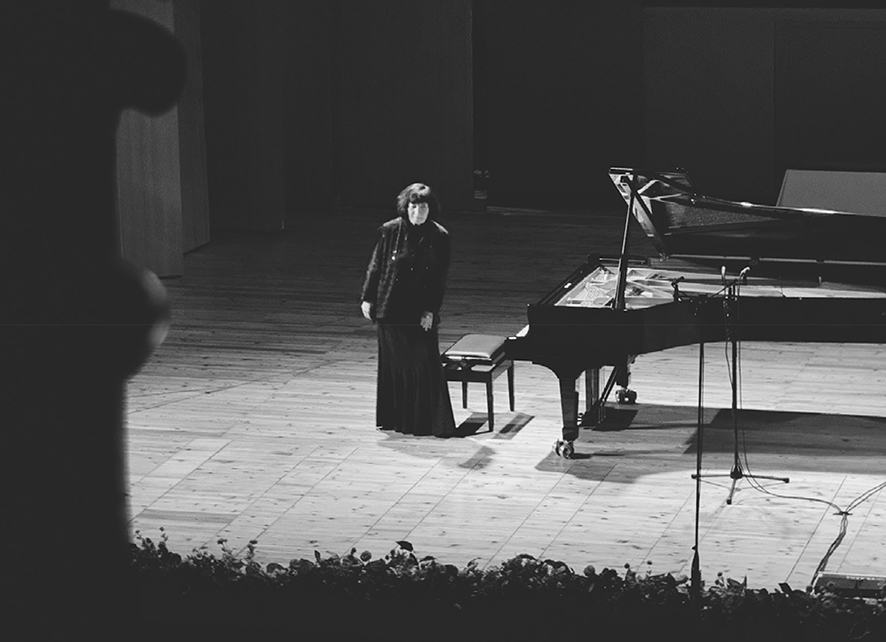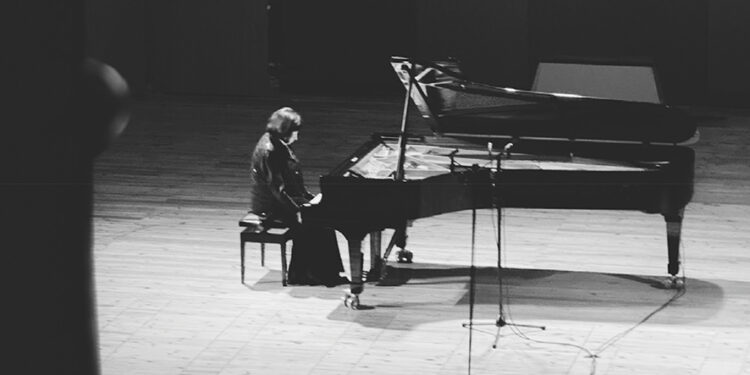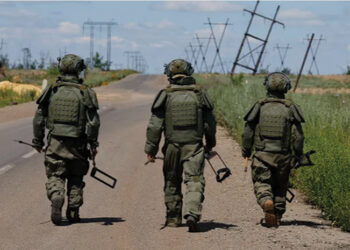There are concerts that entertain. There are concerts that inform. Then there are concerts like Eliso Virsaladze’s May 4th return to the Tbilisi State Conservatoire — events so weighted with cultural meaning, interpretative depth, and sonic intelligence that the usual vocabulary fails. Not merely a performance, this was a séance — Chopin channeled through the disciplined metaphysics of an artist whose every phrase seems to speak from the other side of time.
With the Grand Hall sold out weeks in advance, the evening was shaped as much by expectation as execution. But expectation, in Virsaladze’s case, is not hype — it is trust. The audience came not for sentimentality, but for musical judgment. And what they received was a traversal of Chopin so uncompromisingly analytical, so stripped of decorative excess, that even silence — her patient, trembling rests — became a form of critique.
The program opened with the Polonaise-Fantaisie in A-flat major, Op. 61, a late and structurally elusive work that often resists clarity. In Virsaladze’s hands, it did not “unfold” — it unraveled, like memory itself. Her approach was neither romantic nor abstract. It was architectural: she gave space for every harmonic modulation to breathe, but without letting the fantasia spiral into formlessness.

The bass line was articulated with a near-pedantic clarity — each pedal tone and chromatic slip felt chiselled. Her rubato was controlled, almost introverted: no indulgent swoons, but hesitant pauses that seemed to ask, “Can music still bear the weight of dignity?” It could, and it did. The opening’s descent into thematic fog was rendered not as dream but as philosophical doubt — like a voice speaking itself into disappearance, then clawing its way back with trills and resistance.
Then came the Sonata No. 3 in B minor, Op. 58 — a monument of Romantic sonata form, frequently overplayed as a vehicle for brilliance. Virsaladze brought none of that. She approached it instead like a thinker returning to an ancient, damaged manuscript: restoring it, not embellishing it.
The Allegro maestoso was a lesson in controlled eruption. Virsaladze attacked the octaves with deliberate aggression, but immediately pulled back — a dialectic of force and fragility. The second theme did not “sing” in the usual way, but rather hovered — ironic, questioning, unresolved. Her articulation of the descending minor sixths felt not ornamental but confessional.
In the Scherzo, she played with nervous urgency — not playful, but anxious, nearly sarcastic. A kind of haunted dance, where the hands chase each other like twin voices in an unfinished fugue. The Largo, however, was the night’s centre of gravity. This was no lullaby: it was a prayer said through clenched teeth. Her voicing of inner harmonies turned the melody into a shadow of itself, each note dipped in grief.
The Finale came not as resolution but as protest. Virsaladze’s tempo was slightly held back — Presto non tanto taken seriously — allowing the harmonic friction to seethe. The final cadence did not announce victory, but necessity.
In the Nocturne in C-sharp minor, Op. 27 No. 1, Virsaladze played the opening motif as if afraid of waking someone — herself, perhaps. The left-hand triplets, often flowing like water, here felt burdened, resisted — time lagging behind itself. She reminded us that Chopin’s nocturnes are not just songs of night, but meditations on isolation.

The Nocturne in D-flat major, Op. 27 No. 2, often smothered by prettiness in lesser hands, was rendered with chastity and suspicion. Her dynamics barely rose above mezzo-forte. It was a whisper of elegance, not a cry of passion. Where others shimmer, she questions. And by doing so, she dignifies.
Then came the sequence of seven Mazurkas. Op. 30 No. 4 in C-sharp minor was built from silence — each dance fragment arriving late, like a half-forgotten ritual. The G-sharp minor that followed felt subversive in its asymmetry: she accented the wrong beats, blurred the bar lines, turning rhythmic instability into a political act. The D major was brighter but never innocent — each repeat of the theme slightly deformed, as though remembering itself through trauma.
The final triptych — Op. 59 Nos. 1–3 — unfolded as a collapsing triptych: A minor, A-flat major, F-sharp minor. Together, they mapped an emotional terrain that rejected catharsis. No. 1 in A minor was brittle and halting; No. 2 in A-flatpulsed with dislocated charm; and No. 3 in F-sharp minor closed the set not in triumph, but in grim endurance. A circular motion that refused resolution — echoing Virsaladze’s entire artistic ethos.
Virsaladze uses the piano like a scalpel, not a mirror. Her tone is never glossy. She does not indulge in resonance for its own sake. The Steinway she played on — responsive but restrained — became an instrument of incision. Her legato is rigorous; her pedaling economical. When she uses the sustain pedal, it’s as punctuation, not perfume.
This was not a recital of flamboyant gestures or performative charisma. There were no bows milked for applause, no expressive facial grimaces. In fact, her stillness bordered on the ascetic. But in that restraint was moral force. Virsaladze plays Chopin not as entertainment, but as testimony — to loss, to endurance, to the stubborn persistence of clarity in an age of noise.
In our current era of cultural acceleration, where interpretation is often flattened into “content,” Virsaladze’s approach is radical. She does not interpret Chopin — she interrogates him. In a sold-out hall, she played as if she were alone. And in doing so, she challenges the listener to interrogate themselves.
By Ivan Nechaev














